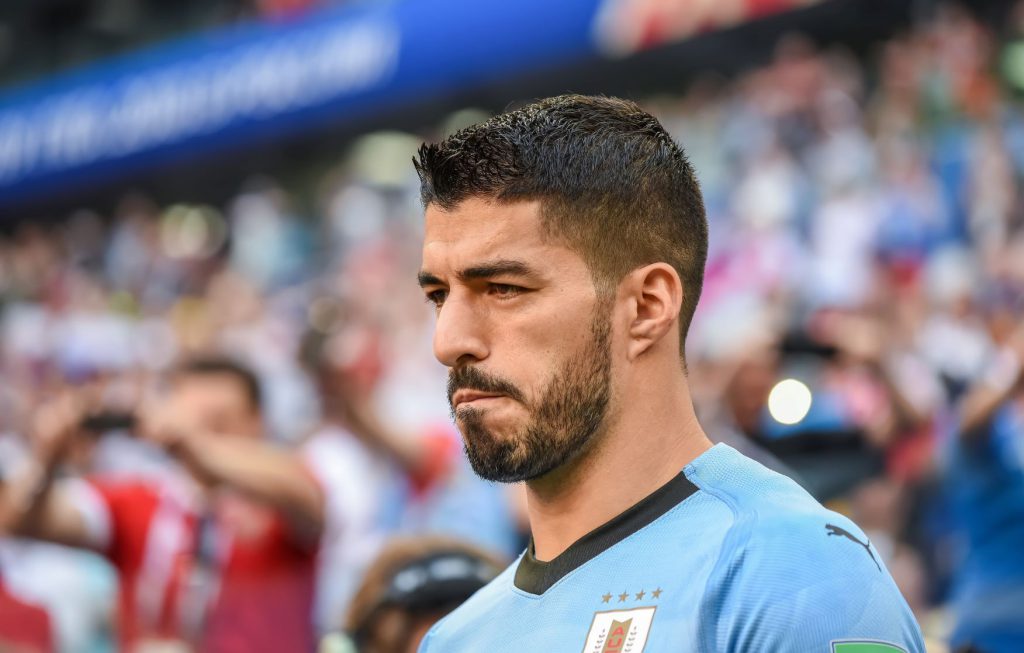Is there a secret to longevity? This health expert says 1,000% yes
In the era of social media, post-COVID, and with mental health at the forefront, a shift is taking […]

The last image of Luis Suarez at the FIFA World Cup will remain etched in memory: this all-time great sitting on the bench, unmoveable, in tears, as the hard reality set in. Uruguay was eliminated despite winning their last match, 2-0, against Ghana, as the Republic of Korea mounted a superb comeback against Portugal, 2-1, and eliminated the South American side by scoring more goals throughout the group phase.
Branded as a “devil” by the Ghanian players, and as a villain by others, Suarez still is one of the greatest players of all time to have donned his national team shirt at the FIFA World Cup and the harrowing image of him on the bench, in total despair, will be forever etched into the competition’s memory.
But what did Suarez bring to the table in the competition and how will he be remembered?
Making his debut in the national team in 2007, as a 20-year-old striker, Suarez was always hailed as one of the top strikers of his generation, with his huge talent and penchant for scoring delivering some excellent performances both for club and country.
For Uruguay, he is the all-time top scorer, with 68 goals, and he made the 2010 FIFA World Cup All-Star team, helping his team finish fourth, after a disappointing 2-3 loss against Germany in the bronze medal game.
In total, the lanky striker, who had to overcome a childhood of hardship and settled in Europe with certain difficulties after switching as a teenager to Dutch side Grongingen, scored seven goals in four editions of the FIFA World Cup.
“Saying goodbye to a World Cup hurts a lot, but we have the peace of mind that we did leave everything on the pitch for our country,” said Suarez after the difficult elimination.
At 35 years old, this was definitely the last salvo for Suarez in the world football flagship competition, as the next edition of the tournament will likely see the Uruguayan striker retired from football.
In fact, even this participation was under threat, as Suarez left his former club, Atletico Madrid, this summer and could not find a team to be ready, guns blazing, at Qatar 2022.
Eventually, he settled for a two-months stint at his boyhood club, Nacional de Montevideo, where he got some match time, earning him several “welcome back” parties and a huge following throughout his native Uruguay.
He did come back at the FIFA World Cup from one last time it was only apt that his final game, against Ghana, was a rematch of probably Suarez’s most infamous gesture in the tournament, one that reverberated and echoed throughout the whole competition.
It was the quarter-final of the 2010 FIFA World Cup and Uruguay was facing Ghana, with the African side trying to become the first-ever team from the continent to reach the semi-finals of the competition.
During the game, Ghana had the chance to win it, but Suarez blocked a header from Dominic Adiyah with his hand on the line. He got a red card, Ghana had a penalty, but Asamoah Gyan bottled it. Then, Uruguay went on to win at penalties.
Pressed to make amends eight years later, Suarez politely declined, and stated that everything he did was for his country and enabling them to secure a better result in a competition, no matter the price paid.
“I didn’t say sorry because I did the handball but Ghana’s player missed the penalty, not me. Maybe I would apologise if I tackled and injured a player but in this situation I took the red card, the referee gave a penalty and it’s not my fault because I didn’t miss the penalty. The player who missed it said he’d do the same. It’s not my responsibility to take the penalty,” said Suarez before the rematch against Ghana.
In Qatar, he was playing like a player possessed and set up both of Uruguay’s goals, scored by Giorgian de Arrascaeta, against Ghana, with that trademark grin appearing on Suarez’s face.
What the striker did not know was that grin morphed into a unstoppable river of tears, after Korea bounced back and eliminated Uruguay, with Suarez on the bench, having been substituted and impossible to change the outcome of the game.
For Uruguay, football is all about winning, there is no second place. And Suarez proved it time and time again, for club and country. Especially, in fact, for the striker, because he was brought up in a divided family with financial issues and had to leave home early, in Salto, to move to the capital, Montevideo.
A sweet swansong would have made all the difference to Suarez, one of the great villains of the sport, who was definitely loved by many and is leaving a legacy of good and bad moments.
It happened that in Qatar 2022, the villain was punished. For Ghana, it was a happy ending, albeit they were also knocked out. But for Suarez, a new chapter awaits.

In the era of social media, post-COVID, and with mental health at the forefront, a shift is taking […]

With its fast speeds and revolutionary potential, 5G stands out as a noteworthy milestone in the field of […]